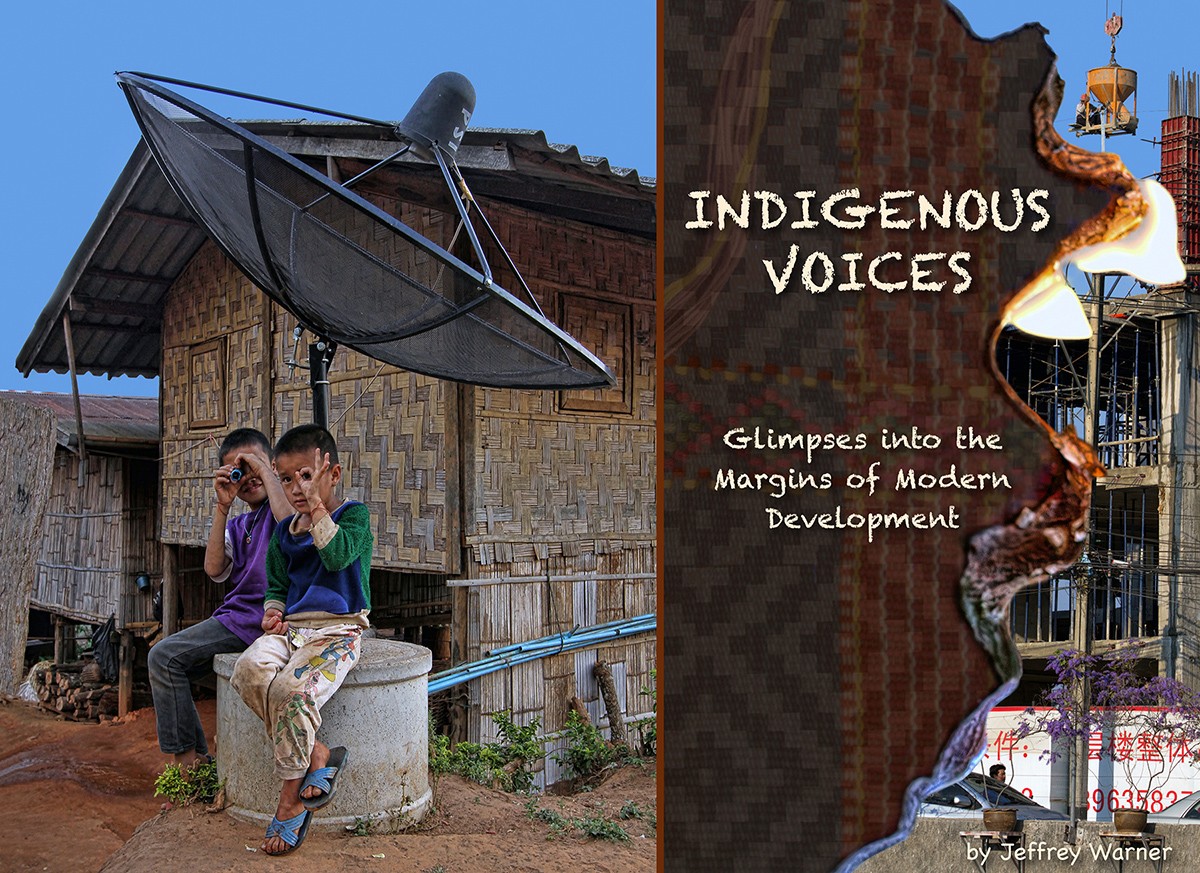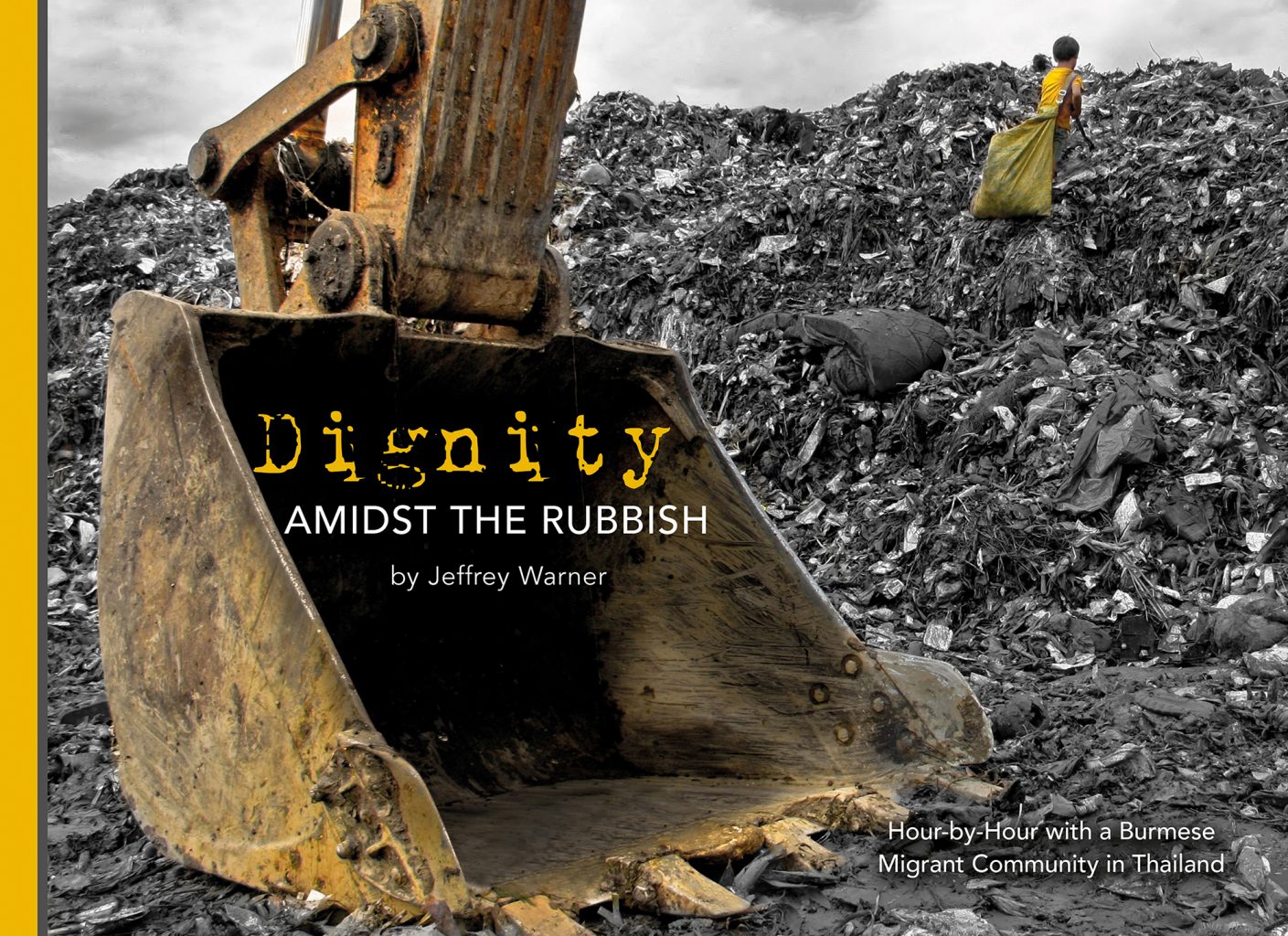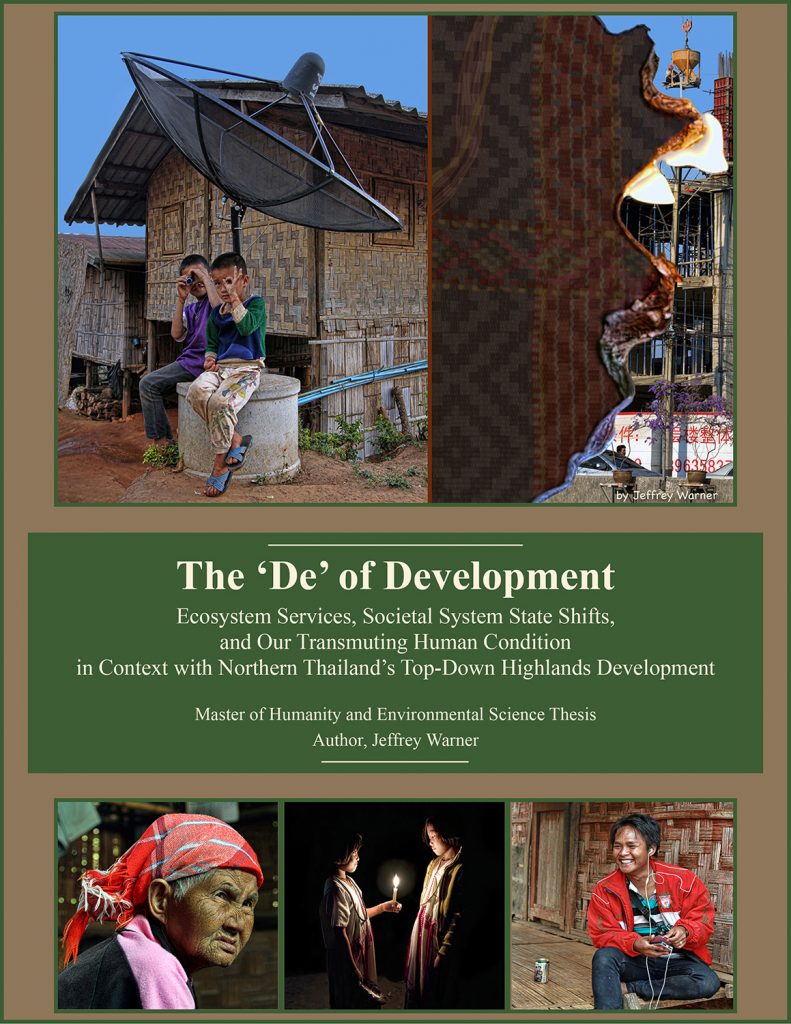Documentary Books by Jeffrey Warner
Indigenous Voices: Glimpses Into the Margins of Modern Development: Let’s delve into how modern development and globalization is affecting the heart of Humankind.
Venture into the mountains of northern Thailand where the traditional cultures of indigenous peoples are literally vanishing as modernity is shifting centuries of learning and knowledge aside. We, step-by-step, learn about the affects of modern development on these communities, and we hear what some of them have to say about this.
To better understand northern Thailand’s indigenous peoples and their overall situation, this book entails the seamlessly paired integration of documentary-style photography, prose, and in-depth interviews — “voices” of villagers 14-84 years old, from three different ethnicities, and from villages existing at different points on a development continuum. They open up the doors of their homes and help us understand.
Indigenous Voices is not merely a book of photography. This book encompasses five years of my field research. It is intended as a textbook of sorts for those who are interested in gaining foundational understandings into some of the deeper and more detrimental societal effects of globalization and “development.’
Are you ready for this journey?
Dignity Amidst The Rubbish: Hour-by-Hour With a Burmese Migrant Community in Thailand is my photo book that places holistic reflection upon the daily lives of a refugee community from Burma that is living on a rubbish dump located in Mae Sot, Thailand, near the Burma border.
Photographs, prose, and the translated voices of this community provide an hour-by-hour glimpse into the situations of these individuals and their families. There is a section in this book that is intended as a funding mechanism to support the community included in the book.
This work focuses not on the deplorable conditions in which they live, but is rather a reflection on this community’s cohesion amid an environment of poverty and strife. Dignity Amidst the Rubbish, at its core, likewise addresses global issues related to the larger condition of humankind at this moment in time and in relation to modern economic development and the global market system.
We, as a global community, are perhaps at a pivotal point in our history. The economic market related decisions that humans have been making for generations are rendering like never before notably tangible effects on our natural environment and overall societal functioning.
If we are going to find creative solutions to global challenges, is it prudent that we consider the roots of prominent global issues?
The ‘De’ of Development is my thesis research purposed toward cultural and environmental preservation as well as cultivating global awareness of development related impact issues.
This mixed methods thesis, conjoining civil documentary journalism with the academic lenses of environmental and social science, explores this inquiry by focusing primarily on the ‘de’ of development. By overlaying and hence connecting the societal with the ecological, I probe, unearth, and concretely bond notions of humans’ intimate connection with each other, with our environment, and how changes in one aspect resultantly impacts the others. This is about our global village.
As a context for investigating how perhaps all of humanity is being continually impacted by development and modernity related phenomena, we journey into the high mountains of northern Thailand. There, the traditional lifestyles of ethnic peoples are rapidly vanishing. Aspects of a homogenizing global culture are perforating their socio-fabric and shifting centuries of learning and indigenous knowledge aside. Villagers from an age range inform us about this.
The root and ultimate goal of this research project is to illustrate our communion on Planet Earth, and how we are together being affected by our collective actions. This has great potential for cultivating intercultural understanding, nourishing human healing, and building social capital.
Humankind, as it always has, can determine its destiny. … May we choose wisely.



